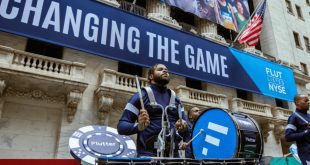
Following the conclusion of this week’s local elections, the Conservative government will likely move to implement a £2 FOBTs wagering limit, impacting all UK betting stakeholders.
SBC contributor Scott Longley assess whether the government understands the consequences of its drastic cut, or if it can justify its FOBTs policy logic…
_________________
Politics has trumped economics in the final stages of the FOBT debate and the recent share price declines of the UK’s listed betting shop operators signal how debilitating the government decision is likely to be to their future revenues.
William Hill saw its share price tumble by 15 percent last Tuesday after reports in the press suggested chancellor Phillip Hammond had accepted that the maximum stakes on B2 gaming machines be set to £2.
GVC Holdings (now the owner of the Ladbrokes and Coral shop estates) fell 8 percent in sympathy and Paddy Power Betfair was down 5 percent.
Sources within the betting industry suggest No.10 and culture secretary Matthew Hancock have won out over objections from the Treasury that a £2 maximum stake would leave a £450m hole in the public finances from reduced machine gaming duty (MGD).
The industry’s ‘£2 nightmare scenario’ comes despite the recent a recommendation from the Gambling Commission for a more nuanced £2 and £20 maximum stake combination.
The decision will be far-reaching and not just with regard to Treasury coffers. Under most forecast scenarios issued by analysts and others, the £2 maximum stake will almost certainly lead to widespread shop closures.
A report commissioned by the bookmakers from KPMG, for instance, reportedly suggested a potential closure figure of well over 3,000 out of the current UK estate of 8,500 shops. Analysis from Morgan Stanley suggests that a long tail of 20 percent of underperforming shops would be immediately vulnerable, or over 2,000 shops. That is without the likely near wipeout of the independent sector which is ill-constituted to survive the coming revenue shock.
Hancock’s half hour
The final announcement is likely to come immediately after the local elections with the government apparently believing this will be a “good news story” for Hancock, also the MP for Newmarket, to announce to parliament.
But the news will be quite the opposite for the thousands of shop staff likely to lose their jobs while racing will also likely find that a £2 maximum stake heralds the ushering in of a harsher funding era.
Most galling for the betting industry is that Hancock would appear to have acquiesced to the move in the mistaken belief that a reduction in gaming revenues in betting shops will directly benefit racing.
Working on the theory that machine spend will be substituted into over-the-counter betting – and horserace betting in particular – there are voices within racing that suggest the £2 stake will be good for the sector. According to this view, the bookies are crying wolf over shop closures and that substitution from machines into OTC will make up for the effective removal of B2s from the shop revenue mix.
Yet the logic of the argument falls down with one look at the data from the Gambling Commission.
According to the last data set available, since 2010 the average percentage rise in year-on-year gross gaming yield (GGY) for B2 play across the UK betting shop estates has been 7.1 percent while B3 play has risen every year by an average of 9.6 percent.
Over the same period, OTC GGY has fallen an average of 2 percent year-on-year while the average fall for horseracing GGR has been just over 3 percent. In total, since 2010 horseracing turnover has fallen 22 percent to £4.4bn and the GGY figure is down by 31 percent to £575.5m.
Horseracing’s supporters might claim a direct link between the rise in machine revenue and the fall in horseracing revenue. But a more plausible correlation is with football betting which has risen a total of 31 percent since 2010 to £294.7m (and reached as high as £330.6m in the year to March 2016).
Coke for gin
All sides agree that a degree of substitution will likely take place in the wake of the imposition of a £2 stake limit on B2s but there are disagreements over the quantum and the direction.
The evidence from the introduction of the so-called £50 journey in 2015 is limited as it mainly saw B2 play migrate to just below the new soft cap. With a £2 maximum stake, there will likely be a degree of substitution between B2 and B3 play but nowhere near enough to make up for the B2 revenue demolition. Meanwhile, SSBTs might also benefit from a degree of migrating B2 play but with all the evidence pointing to these terminals being predominantly football, it is difficult to see how racing will benefit.
Where all this will play out badly for racing is in the realm of media rights payments which are supplied on a per shop basis. Any drop in shop numbers will have an immediate impact.
Martin Cruddace, chief executive at Arena Racing Company (ARC), said at the start of the year the predicted shop closures would be “catastrophic” for racing, resulting in at least £55m being lost from racing’s coffers. Nick Rust, the chief executive of the BHA, has similarly weighed in suggesting a cut to £2 maximum stakes would have “unintended consequences.”
The FOBT debate is finally over but both the betting industry and the world of racing will have to wait for the full effects of the legislation – which likely won’t come into force until late 2019- to become evident. Until then, expect the current pace of closures – 4 percent were lost between March and September 2017 – to continue as the industry attempts to right size in readiness.









